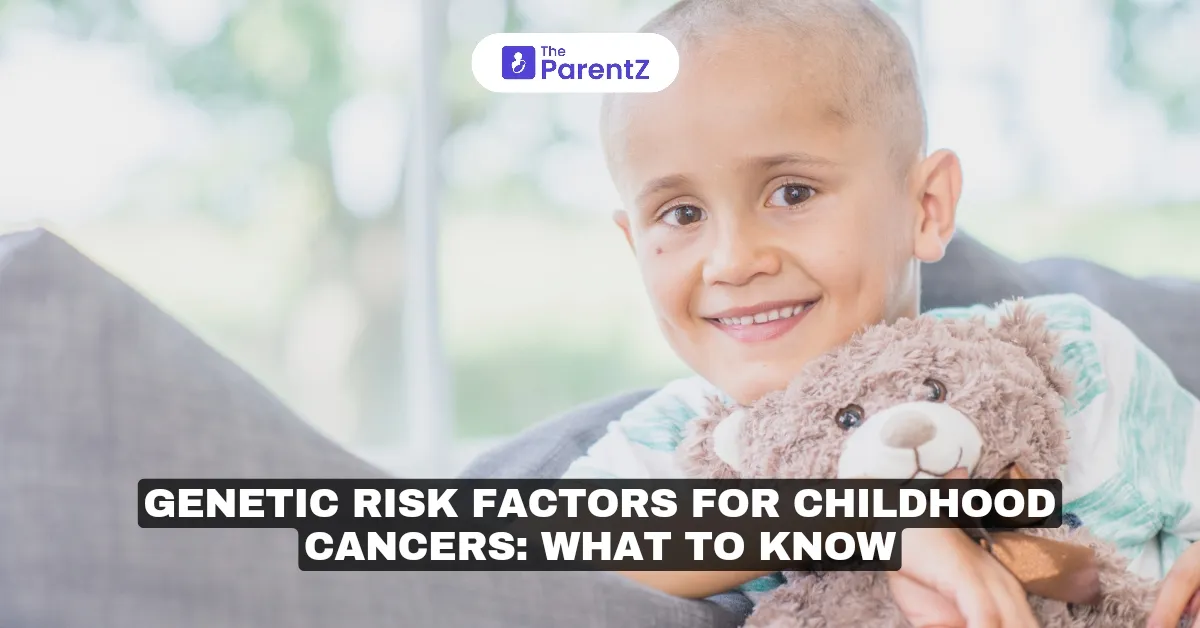Childhood cancer—a word enough that has the power to send chills down a parent’s spine. While the thought of young lives struggling through this condition is heartbreaking itself, it becomes even more important to understand how genetic risk factors may be a reason behind childhood cancer and why early detection is essential.
Read below this article to find out more.
The Role of Genetics in Childhood Cancer
Did you know that almost 5-10 percent of all childhood cancers are directly linked to inherited genetic mutations? These mutations are basically changes in a child’s DNA that they inherit from their parents. While most childhood cancers occur due to random mutations during cell division, some genetic predispositions can significantly increase the risk of these mutations leading to cancer.
For example, children with a rare genetic disorder, named Li-Fraumeni syndrome, are at a much higher risk of developing cancers such as sarcomas, leukaemia, and brain umors. Similarly, retinoblastoma, a cancer of the eye, is often caused by mutations in the RB1 gene. Though the genetic factors don't certify cancer, they might be a catalyst when paired together with other biological or environmental factors.
Common Genetic Syndromes Linked to Cancer
Here are some genetic syndromes that are strongly associated with increasing the risk of cancer in childhood.
Li-Fraumeni Syndrome
Kids with this condition have a mutation in the TP53 gene, often referred to as the guardian of the genome. This mutation hampers the body’s ability to suppress tumours, thus resulting in an increased risk of various cancers, including brain tumours and osteosarcoma.
Down syndrome
Kids suffering from Down syndrome have 10-20 times higher chances of developing acute lymphoblastic leukaemia (ALL) compared to children without this condition. Typically, an extra copy of chromosome 21 is believed to disrupt normal cellular processes.
Beckwith-Wiedemann Syndrome (BWS)
Beckwith-Wiedemann Syndrome (BWS) is also associated with an increased risk of Wilms tumour, a type of kidney cancer. Nearly 5-10 percent of children with BWS develop cancer, thus making regular monitoring essential.
Neurofibromatosis Type 1 (NF1)
NF1, caused by a mutation in the NF1 gene, significantly increases the risk of developing brain tumours, particularly optic gliomas.
The Need for Early Detection
Genetic testing can significantly help by informing the families about the potential risks. If a parent knows they carry a mutation like BRCA2 or TP53, they can resort to early screening for their children, potentially catching cancers at their earliest and most treatable stages. Did you know, according to the American Cancer Society, the five-year survival rate for childhood cancers is around 85 percent, which, however, depends on the type of cancer and how early it is detected?
Although genetic factors play a big role, other environmental factors, including radiation, secondhand smoke, and prolonged exposure to certain chemicals, can compound genetic risks.
Takeaway
Childhood cancers linked to genetic factors are a reminder of the intricate relationship between the DNA and the environment. Thus, if there’s a history of cancer in your family, consider consulting your healthcare provider to determine if you or your child carry specific mutations. Besides, regular checkups and staying aware of the early signs of the cancer are other essential aspects to ensure your and your family’s health. Also read our article on recognizing early signs of oral cancer in children.








Be the first one to comment on this story.